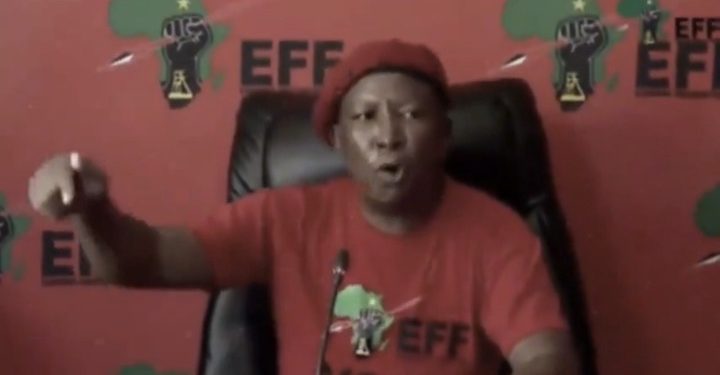In a surprising turn of events, the Economic Freedom Fighters (EFF) has voiced significant concerns regarding the financial implications of illegal immigration in South Africa. This shift comes in stark contrast to the party’s previous stance, where it had encouraged foreigners to find “creative ways” to enter the country. This inconsistency has sparked discussions and debates about the party’s evolving position on immigration and its implications for South African society.
The EFF’s recent statements highlight a growing anxiety over the increasing costs associated with illegal immigration, including economic burdens on public services, crime, and social integration challenges. The party’s leadership has cited statistics indicating a rise in undocumented immigrants, raising fears about the strain on local resources and the potential impact on job opportunities for South African citizens. With the country grappling with high unemployment rates and economic challenges, the EFF is now calling for a more stringent approach to managing immigration.
This change in tone has drawn criticism and confusion from various quarters. Critics argue that the EFF’s earlier encouragement for creative entry methods effectively undermined the integrity of South Africa’s immigration policies. By promoting a more lenient stance on immigration, the party may have inadvertently contributed to the current issues it now seeks to address. Observers note that such contradictions raise questions about the EFF’s commitment to a coherent and comprehensive immigration policy.
Party leaders have defended their recent shift, stating that their initial position was aimed at advocating for the rights of migrants and recognizing the contributions they make to society. However, they now assert that the rise in illegal immigration has reached a point where it can no longer be ignored. The EFF emphasizes the need for a balanced approach that respects human rights while also safeguarding the interests of South African citizens.
In light of these developments, the EFF is calling for a national dialogue to discuss immigration policies and their implications for South Africa’s future. The party aims to engage with various stakeholders, including civil society organizations, government agencies, and immigrant communities, to find a sustainable solution to the challenges posed by illegal immigration.
As the debate continues, many South Africans are left wondering how the EFF’s stance will evolve in the future and what it means for the broader discourse on immigration in the country. The complex interplay between economic realities, social dynamics, and political rhetoric remains a critical issue for South Africa as it navigates its path forward in an increasingly interconnected world.






















